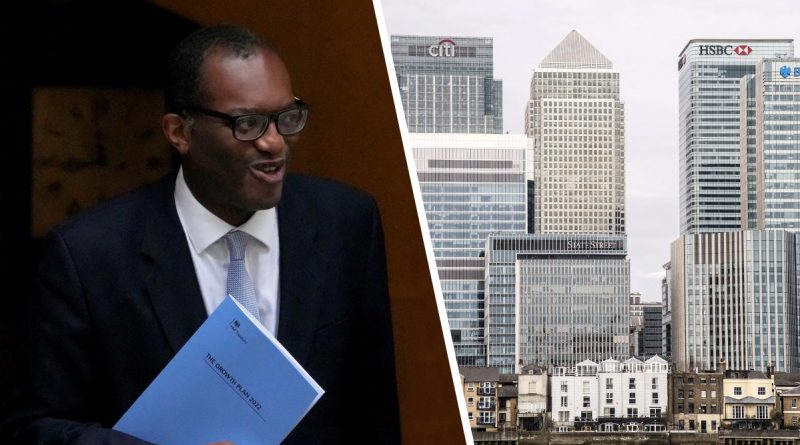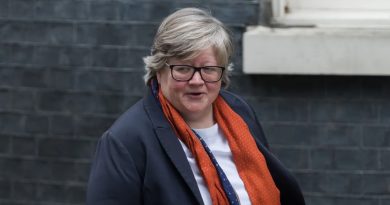Kwarteng Considers Extending Mortgage Guarantee Scheme
The chancellor is considering expanding the government’s mortgage guarantee program. This comes after UK bank executives expressed concerns about the status of the UK mortgage market in a high-level meeting at No. 11 Downing Street.
The meeting
Alison Rose of NatWest, Charlie Nunn of Lloyds Banking Group, Ian Stuart of HSBC UK, Mike Regnier of Santander, and Robin Bulloch of TSB were among the chief executives present at a meeting on Thursday. The meeting was held as concerns about the potential effects of rapidly rising mortgage rates increased.
The government’s mini-budget sent the UK financial markets into meltdown last week. Therefore, the participants of the meeting asked executives from a number of companies for their opinions on various options to support consumers who are having trouble getting mortgages.
So, according to reports, the situation seems to be getting a little lighter. The chancellor, Kwasi Kwarteng, is now thinking about extending the mortgage guarantee program through its deadline of December.
What is the Mortgage Guarantee Scheme?
The program offers banks and building societies the opportunity to buy a government guarantee. Moreover, it allows them to buy it on the portion of the mortgage that is between 80% and 95% of the value of the property. It indicates that the government will compensate that portion of the lender’s losses in case a borrower experiences financial difficulties and if authorities repossess their property.
What’s the issue?
The scheme re-opened last year during the pandemic. It was a response to concerns that home values would plummet. And therefore, the government thought to revive the scheme to keep 95% of mortgages available to borrowers.
However, the epidemic ultimately increased home prices even more. Despite the alleged assistance the program would offer, an analysis from April 2021 revealed single buyers in their 30s making the UK median pay would still be unable to buy a home in roughly half of the local authority areas in England and Wales.
The money market “swap rates” are what largely determine their pricing. So, the scheme does not directly address the issue of rising rates on new fixed home loan deals. However, it will give lenders peace of mind at a time when many forecasters are predicting house price falls of perhaps 10% or more. Moreover, the government will be hoping that has an impact on low-deposit mortgage pricing in particular. It could mean that lenders do not feel compelled to include a sizable surcharge due to the unstable economic environment.
The outcome of the meeting
The meeting with bank executives came after a difficult week. This week, the typical two-year fixed mortgage rate surpassed 6% for the first time since 2008.
Moreover, the mini-budget drove the pound to new lows. Besides, it brought down the price of UK government bonds. And all of this happens amid concerns about the country’s long-term economic health.
In the end, the catastrophe increased expectations for long-term interest rates. Thus, this made it more challenging for UK banks to accurately price mortgages. As a result, there was a large-scale withdrawal of house loans last week. Before banks started to return with new products that were frequently priced 1% to 2% higher, roughly 40% of mortgage deals had gone down.
Since then, banks have been facing questions from Financial Conduct Authority (FCA) regulators about how they intend to assist mortgage borrowers.
According to the data company Moneyfacts, the average new two-year fixed rate increased once more to 6.11% on Thursday. This was 4.74% on the day of the mini-budget. Comparatively, the figures were 5.75% on Monday and 6.07% on Wednesday. Moreover, the average interest rate for five-year fixed-rate mortgages increased to 6.02% on Thursday.
The meeting was “constructive and supportive,” according to one executive. Meanwhile, bankers are stressing how the recent market volatility has harmed the mortgage industry.
Different opinions
On Thursday, Kier Starmer, the head of Labour, again disparaged the effect the government has had on the mortgage market. During a visit to Bilston, Wolverhampton, he declared, “The prime minister has taken the economy and driven it into a wall. Besides, she’s [is] pretending that this is pro-growth.” However, according to him, it is anti-growth if the effects lead to monthly mortgage payments rising by hundreds of pounds. It stifles development. Thus, it is definitely not in favor of growth.
What’s more?
During the meeting, there’s a rumor that UK bank executives have expressed concerns about the FCA’s upcoming consumer duty regulations. Although the intention of the regulations is to place the interests of consumers at the center of financial services decision-making, bosses warned that they can prevent banks from developing long-term customer-benefiting products.
Executives from smaller banks discussed cutting the amount of loss-absorbing capital they need to raise and retain against riskier assets. Meanwhile, some bosses also highlighted concerns about the ringfencing legislation. It separates conventional savings and current accounts from investment banking operations.
In the meeting, which was identical to the ones with asset managers and investment bankers last week, the participants faced questions about their own suggestions for promoting growth and investment in the City. Also, they needed to suggest ways the government could stabilize the markets.
Kwarteng and Liz Truss have tried to emphasize their pro-business, pro-City position. It also includes their plans to eliminate the EU banker bonus cap and introduce “an ambitious package of regulatory reforms” by the end of October.




